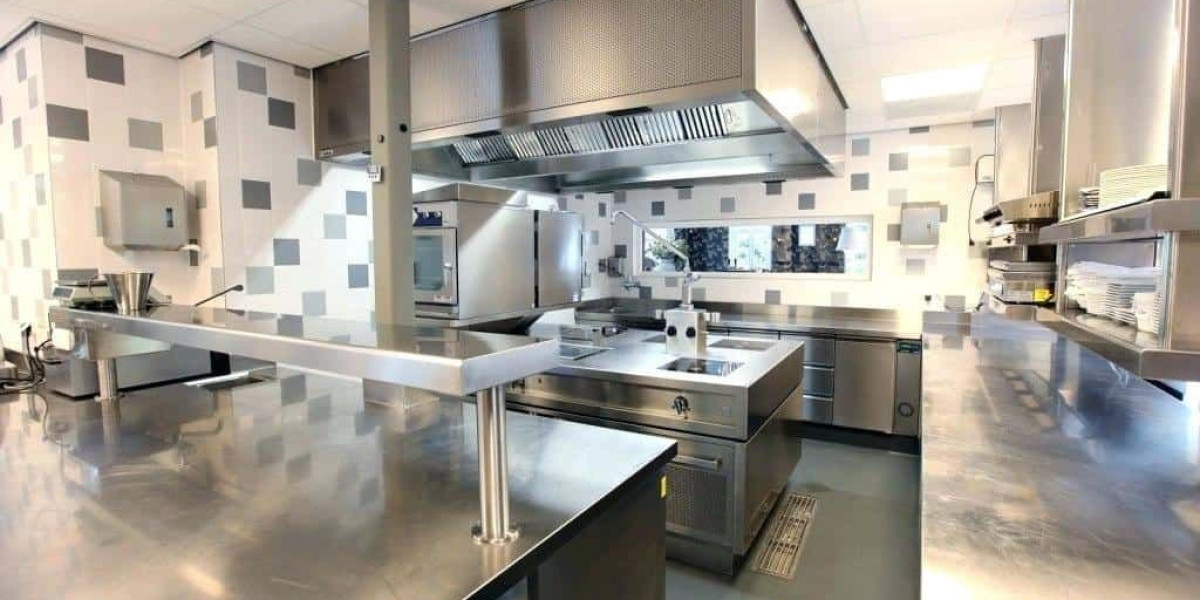The kitchen is more than just a cooking space—it’s often the heart of the home, a place for gathering, creating, and sharing. Achieving a kitchen that combines functionality, comfort, and style requires careful planning and expertise. This is where a professional kitchen designer comes in, offering invaluable guidance to create a space that is both beautiful and tailored to a client’s needs.
What is a Professional Kitchen Designer?
A professional kitchen designer is trained to blend aesthetics with practical design. They bring knowledge of spatial planning, ergonomics, materials, color theory, and industry trends. These designers don’t just design kitchens that look good; they create spaces that work seamlessly, enhancing the daily experience of everyone who uses them.
Key Skills and Qualities of a Professional Kitchen Designer:
Space Planning and Functionality:
- Kitchen designers are experts in optimizing space, ensuring that every inch is used effectively. They focus on ergonomic layouts, like the "work triangle" (the optimal positioning of the sink, stove, and refrigerator), to improve flow and efficiency.
Creative Vision and Aesthetic Sensibility:
- Professional designers have an eye for what works aesthetically and are skilled at integrating style with function. They consider elements like cabinetry style, countertop materials, and color palettes, aligning them with the client’s vision.
Project Management and Coordination:
- From conception to completion, kitchen designers manage every stage of the project. They coordinate with contractors, electricians, and plumbers, ensuring everything runs on schedule and meets quality standards.
Budget Management:
- Professional designers are skilled at working within a budget, advising clients on where to invest and where to save. They know how to source high-quality materials and appliances without overspending, ensuring value and quality.
Benefits of Hiring a Professional Kitchen Designer:
Customized Solutions:
- Every household has unique needs, and a professional designer tailors the space accordingly. Whether a client enjoys hosting large gatherings or cooking elaborate meals, the designer customizes the layout, storage, and features to suit those preferences.
Access to Quality Resources:
- Designers have established relationships with suppliers, providing clients with access to high-quality materials, often at better prices. This expertise ensures that the kitchen’s finishes and appliances are built to last.
Enhanced Efficiency and Flow:
- A designer can significantly improve the kitchen's functionality, making sure it’s not only beautiful but also easy to navigate. For compact kitchens, they excel at maximizing every inch, ensuring an organized, clutter-free space.
Increased Home Value:
- A professionally designed kitchen can increase the value of a home. A modern, stylish kitchen appeals to potential buyers, making the investment worthwhile if the homeowner decides to sell in the future.
The Design Process: What to Expect:
Consultation and Assessment:
- The first step involves understanding the client’s needs, lifestyle, and vision. A designer may ask questions about cooking habits, favorite styles, and the overall goal for the space.
Design Concept and Planning:
- Based on the initial consultation, the designer creates a customized plan, incorporating elements like color schemes, cabinetry, appliances, and lighting. Many designers provide 3D renderings to help clients visualize the finished product.
Budget Alignment and Adjustments:
- The designer works closely with the client to align the design with the budget. This stage may involve adjustments to materials or layouts to stay within the agreed cost.
Installation and Final Touches:
- During the installation phase, the designer oversees the project, ensuring each component is installed accurately. After installation, the designer reviews the space with the client, making any final adjustments for a flawless result.
How to Choose the Right Kitchen Designer:
- Review Their Portfolio: Examining a designer’s past projects gives insight into their style and versatility.
- Check Certifications: Certified kitchen designers often have specialized training and adhere to industry standards, ensuring a high level of expertise.
- Evaluate Communication Style: A good designer listens to their clients and values open communication, which helps in creating a kitchen that truly reflects the client’s vision.
- Ask for References: Talking to past clients can provide an idea of the designer’s reliability, timeliness, and overall satisfaction.
Conclusion:
A professional kitchen designer brings creativity, expertise, and experience to the table, transforming kitchens into spaces that are not only functional but also beautiful. For homeowners looking to enhance the heart of their home, investing in a professional kitchen designer can be a transformative experience, resulting in a kitchen that perfectly balances style, efficiency, and comfort.















